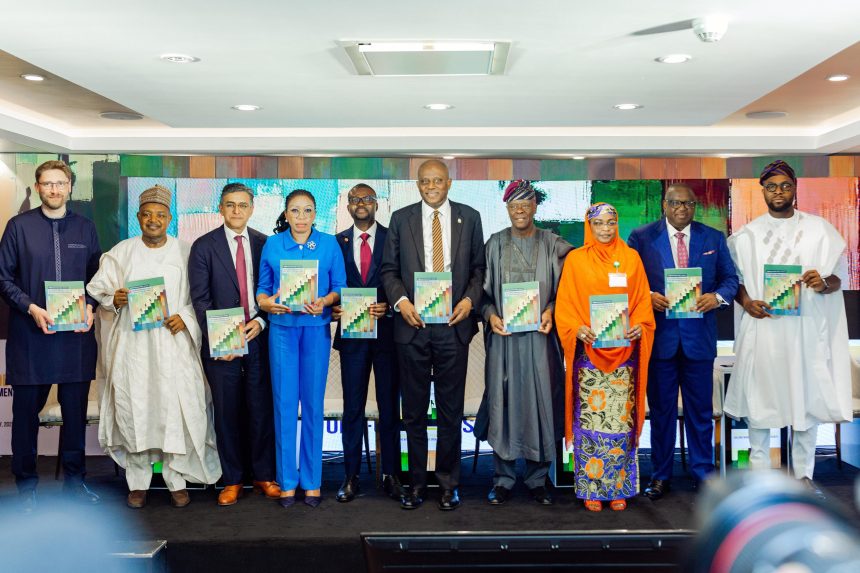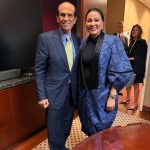FG to Ignite Grassroots Economy, Focus on Ward-Level Development
By Patience Ikpeme
The federal government has unveiled ambitious plans to stimulate economic growth from the local level, transforming Nigeria’s local government areas into vibrant hubs of development and economic activity.
This commitment forms a key part of President Bola Tinubu’s broader economic reform agenda, which aims to deliver tangible improvements in the living standards of all Nigerians.
Speaking at the launch of the May 2025 edition of the World Bank Nigeria Development Update (NDU) in Abuja, the Minister of Budget and Economic Planning, Senator Abubakar Atiku Bagudu, expressed the administration’s optimism regarding the steady progress being made, despite the transitional challenges associated with the ongoing reforms.
Senator Bagudu conveyed President Tinubu’s unwavering resolve to ensure that the benefits of these reforms translate into improved welfare for the majority of Nigerians.
He noted a significant transformation in government revenue generation, with increased financial inflows to subnational governments and noticeable reductions in debt levels—developments he attributed to sound fiscal management under the administration’s implemented policies.
“There was a time when oil sold for over $100 per barrel, yet some states struggled to pay salaries,” Senator Bagudu observed. “Today, we are seeing increased revenues for states and a reduction in their debt levels. These are improvements that provide states with the fiscal capacity to invest in development.”
He explained that the administration has initiated a programme to map the economic potential of all 8,809 political wards across Nigeria. This initiative, slated for formal launch by President Tinubu in the coming weeks, aims to identify and cultivate economic opportunities within each local community.
Senator Bagudu stated that this programme will complement existing reform efforts by generating employment through local economic activation, rather than solely relying on direct cash transfers.
“The President believes that sustainable growth must be inclusive. Every level of government is now collaborating to map out economic opportunities at the ward level. This forms the foundation for prosperity—development that originates where the people live and work.”
As part of this inclusive strategy, Senator Bagudu outlined the administration’s focus on disciplined budgeting, enhanced accountability, and a performance-oriented public service. He cautioned against excessive budgeting practices, asserting that the national budget must reflect the country’s economic potential and aspirations, rather than simply mirroring past spending patterns.
He acknowledged the challenges identified in recent poverty assessments, clarifying that while the figures are concerning, they are based on data collected before the reforms fully commenced in June 2023. According to him, the federal government is concentrating on implementing actionable solutions rather than shifting responsibility.
“We acknowledge the figures,” he said. “But they don’t capture the current pace of change. We are determined to achieve more because Mr. President accepted responsibility when he campaigned for this office. We are not yet where we aspire to be, but we are progressing in the right direction.”
The Minister commended the National Bureau of Statistics (NBS) for maintaining the integrity of its data, noting that while the Bureau falls under the supervision of his ministry, it operates with methodological independence. He pointed to ongoing improvements in labour market data, the Consumer Price Index, and GDP reporting as evidence of Nigeria’s maturing statistical systems.
Senator Bagudu also discussed the crucial role of private sector investment in infrastructure development, stressing the need for consistent dialogue and timely policy adjustments. He cited the government’s recent engagement with the sugar industry as an example of how federal authorities are adapting policies based on input from stakeholders.
“Our infrastructure goals are ambitious. To achieve them, we must treat investors with the seriousness they deserve. We’ve established mechanisms to adjust policies in real time and will continue this approach to boost investor confidence and project delivery.”
He noted that the Coordinating Minister of the Economy, Mr. Wale Edun, remains actively involved in ensuring high standards of performance across all ministries and agencies.
The latest edition of the Nigeria Development Update provides an analysis of Nigeria’s economic outlook and assesses the impact of policy decisions made under the Renewed Hope Agenda.
The report suggests that while challenges persist, the economy is exhibiting signs of gradual stabilisation driven by improved revenue performance, fiscal discipline, and the momentum of reforms.




